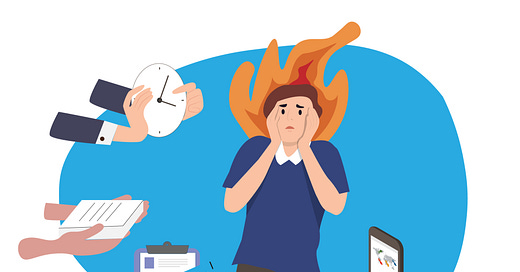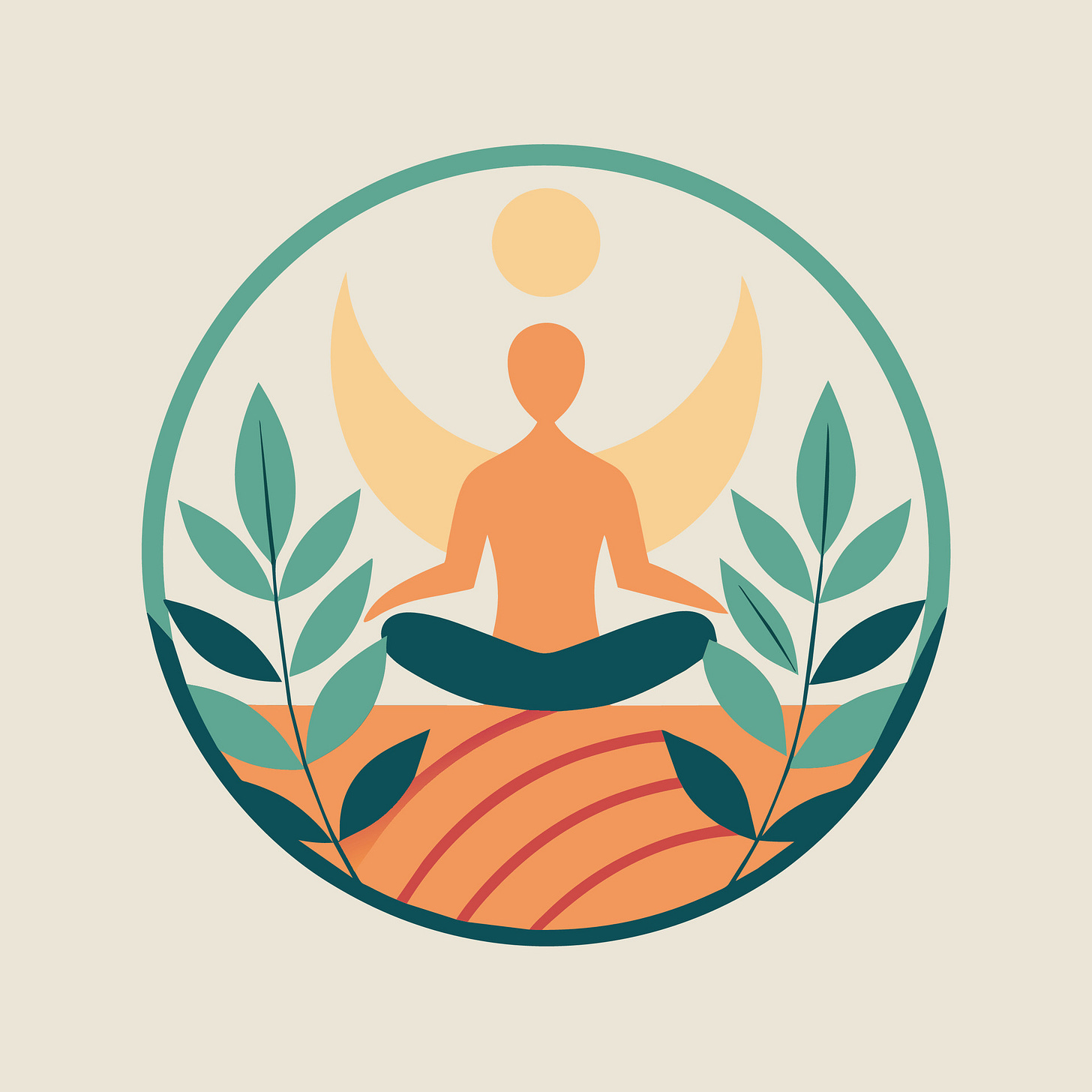Happy Friday peeps!
Glad Midsommar to all my friends here in Sweden.
I went through an intense burnout phase a few years ago and the experience changed me profoundly.
As has been the case with many other experiences that I’ve had in my career, it made me realise the importance of setting healthy boundaries between my professional and personal life.
In this week’s newsletter, I’ll go over how I fought burnout and came out on the other side.
Here goes….
Recognising the Signs
I can’t pinpoint the exact moment when I realised something was wrong but I remember how I started to feel a sense of dread at the thought of going to work each morning. I felt emotionally exhausted, my energy was low and my productivity had crashed.
I had taken up that particular job with a high level of enthusiasm but that had all fizzled out. Even worse, it was replaced by a constant state of fatigue and frustration. Acknowledging the fact that all wasn’t well and that I had to take drastic action to get back on track was the first step.
Taking Immediate Action
Here’s what I did:
Took Time Off: I spoke to my Manager and asked for a few days off to take a step back and recharge.
Prioritised Tasks: The sense of being stuck on a treadmill of things to tick off was driving me crazy. I, thus, went on a prioritisation exercise which meant making a list of my most critical tasks. I promised myself that I’d focus on those and deprioritise non-essential work.
TIP: Turn off email alert pop-ups. They’re mere distractions and make you lose focus.
Set Boundaries: I began to set clear boundaries between work and personal time. That ensured that I had space to unwind and relax.
TIP: One thing that helped me a lot was combining my work and personal calendars. It’s just easier to organise with everything in one place and having your calendar blocked when you’re busy with personal stuff also means that your colleagues know you’re not available.
Seeking Support
I did a bit of research on overcoming burnout. Every video, blog and podcast that I came across I suggested asking for support. So, here’s what I did:
My Manager already knew I was struggling but I had an honest and open conversation with him about the levels of stress I was experiencing. We agreed on ways to plan better and to try to avoid tight deadline situations. That helped a lot!
I was already consulting a therapist for other personal stuff that I was going through at the time. I brought up burnout in those therapy sessions and got to learn some amazing techniques on managing stress and developing coping mechanisms.
I knew I wasn’t the only one struggling at my workplace. I, thus, decided to open up to trusted colleagues about what I was going through. They, in turn, shared their experiences with me. Opening up to them provided a sense of camaraderie and relief. The feeling of not being alone can mean a lot in such situations.
Thinking Long-Term
It took a while but I noticed gradual improvements in my mood. That mean that I was on the right track but I also wanted to prevent experiencing burnout in the future.
I, thus, set out to:
Develop a self-care routine by promising myself to exercise regularly, get sufficient sleep and take some time out for my hobbies.
Incorporated mindfulness practices, such as deep-breathing exercises (esp. before going to bed), into my daily routine to stay present and reduce anxiety.
Get trainings and learn about new work tools to work faster and in an efficient way. Smart work = free time and free time = less stress.
All in all, dealing with burnout was a challenging experience. Through it, though, I learned the importance of acceptance, self-awareness and the need to address stress before it escalates beyond sustainable levels.
By taking the steps I’ve described here, I regained my energy and found a healthier balance between my professional and personal life. In an odd way, I am, in fact, grateful for having gone through a burnout because it taught me to prioritise my well-being.








Life is a journey and a season at the same time. We will all have our moments, good and bad (cold and cold), but when you read something helpful like this, it stays with you. During such dark moments, you get to know where to begin
Thank you so much for sharing these helpful tips! I can relate to so many of those feelings you had. The main thing is to recognize when burnout is happening (if not before!) and to take a step back, like you did. Then we can start to look at ways to help ourselves. I found that talking about it was one of the most impactful things I did when I started to experience burnout.
Too often, we ignore the signs and just keep pushing through, but that’s no way to live. Thanks again for this. 😊